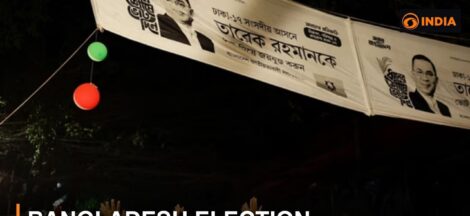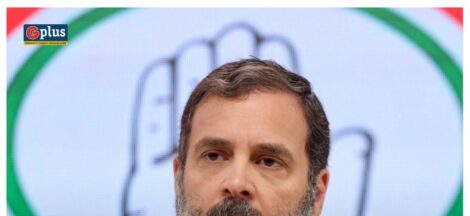i. Supreme Court quashes ban on protests in Central Delhi – The Supreme Court has held that there cannot be a blanket ban on protests in Central Delhi and the police has been asked to frame guidelines. The petition had been filed by an NGO Mazdoor Kisan Shakti Sangathan against the repeated orders by police under Section 144 CrPC, which progressively declared Central Delhi virtually unavailable for protests, except Jantar Mantar. This, it was contended, was in violation of the fundamental right to freedom of speech and expression and to peacefully assembly. Section 144 CrPC is to be used only in urgent cases of nuisance and apprehended danger and the power is to be exercised with great caution, as was held by the Court in Ramlila Maidan Incident case (2012) 5 SCC 1, the petitioners argued. The Court agreed with these arguments finding such orders illegal. [Mazdoor Kisan Shakti Sangathan v Union of India, Writ Petition (Civil) No. 1153 of 2017, date of judgment: 23.07.2018]
ii. Centre and States asked to file affidavits on steps to fill vacancies in Information Commission – The Supreme Court has asked the Union of India and States to file affidavits within four weeks detailing the steps taken to fill vacancies in Information Commissions with a definitive time schedule. The Governments have been warned that no further time would be granted for the completion of the process. The Court has also ordered the Centre to explain as to why appointments have not been made in accordance with the 2016 advertisement. The Petitioners also highlighted that the Andhra Pradesh does not have a commission and the Kerala Commission is working with 10 vacancies.
iii. Scheme for compensation to survivors of sexual assault and acid attacks approved – The Supreme Court has approved the compensation scheme for survivors of acts of sexual assault and acid attacks. The Scheme was collectively submitted by NALSA, a committee of Ministry of Women and Child Development, Department of Legal Affairs and the National Commission for Women. The Centre had approved the scheme earlier while making it clear that the States and UTs could add to the scheme but not take away from it. The parties to the case have also asked the scheme be extended to survivors of victims of child sexual abuse. The amicus curiae would reply on the issue in 2 weeks. [Nipun Saxena v Union of India, Writ Petition (Civil) No. 565/2012, date of order: 25.07.2018]
iv. Third party insurance of 3 years for cars and 5 years for two wheelers mandatory – The Supreme Court has held that all vehicles that would be sold from September 1 onwards would have to mandatorily be insured for 3 years, in case of cars and 5 years, in case if two-wheelers from third party insurers. This was decided on the basis of the recommendations by the Supreme Court Committee on Road Safety, according to which 66% of the vehicles on Indian roads are plying without any insurance. IRDA has been asked to issue appropriate directions to all General Insurance Committees. The Court also asked the Committee to look into the issue of potholes, as according to the reports, they are one of the biggest reason of road accidents and deaths. [S. Rajaseekaran v Union of India, Writ Petition(Civil) No. 295/2012, date of order: 20.07.2018]
v. Former ADJ who accused MP Judge of sexual assault seeks reinstatement as judge – The MP Additional District Judge who had accused MP High Court Justice S.K. Gangele in 2014 has approached the Supreme Court demanding reinstatement as a Judge. She claims that her termination was an act of ‘constructive termination’ as she was forced to resign from her job, which forced her to work in a conflict area as she refused to bow to the immoral wishes of her superior. Various Committees had been set up to look into the allegations and at each level, the charges were found to be not proven.
vi. Marriage registration process should be more welcoming to inter-religion marriages – The Punjab and Haryana High Court has asked the State of Haryana to modify the Court Marriage Check List to bring it in line with the Special Marriage Act, while calling some of the requirements like notice to parents and publishing a notice in the newspapers announcing their intention to marry as offensive to the privacy of the individuals. The current requirements also require the applicants to not reside in one location. The Court read down all of the above mentioned requirements, and restricted them only to those which are bare minimum requirements to carry out the process as the State’s interest should lie in the process instead of the peripheral concerns. [A and Another v State of Haryana, Civil Writ Petition No. 15296 of 2018, date of order: 20.07.2018]
vii. IT Return can be filed without Aadhaar – The Delhi High Court has ordered Centre Board of Direct Taxes to create a platform for filing Income Tax Return without Aadhaar at least till March 31, 2019. The CBDT has been ordered to introduce an ‘opt out’ option into the platform. This comes after the Court allowed certain individuals to file their returns without linking their Aadhaar since the deadline for linkage had been extended to March 31, 2018. Thus, such returns can be filed within the deadline without such linkage, they shall be processed in accordance with the existing regulations and laws. [Shreya Sen v Union of India, Writ Petition (Civil) No. 7444 of 2018, date of order: 24.07.2018]
viii. Tripura HC orders government to destroy cannabis in 6 months – The Tripura High Court, taking note of the rampant drug problem in Tripura has directed the Chief Secretary and Director General of Police to take steps to destroy the existing cannabis crop and further prevent the cultivation of the crop. The State has been dealing with issues of illegal drug trafficking as well. The Court has called upon the State to take active measures to deal with the problem and at the same time ensure that innocent individuals are notharmed in the process. [Sri Ashish Sarkar v State of Tripura, Bail Application No.58 of 2018, date of order: 23.07.2018]
Other developments–
i. Government releases Justice Srikrishna Committee report and draft bill on Personal Data Protection Bill, 2018– The law, according to the report should be applicable to processing of personal data if such data has been used, shared, disclosed, collected or otherwise processed in India. If those entities which will be processing the data will not be required to follow the mandate of the law, unless the company has been incorporated in India. If the company has been incorporated in India – it is bound to follow Indian law. The report wants the definition of personal data to remain broad and flexible changing with the context. The law should cover the processing of personal data by both private and public entities and sensitive personal data has been meant to include passwords, financial data, health data, official identifier, sex life, sexual orientation, biometric and genetic data, and data that reveals transgender status, intersex status, caste, tribe, religiousor political beliefs or affiliations of an individual. The usage of data has to be only by consent which is clear and lawful. A body under the Act – the Data Protection Authority has been entrusted with the effective enforcement of the provisions of the law – including registration of entities who want to use data, appointment of data protection officers etc.
IPA Service)
Prepared by Amritananda Chakravorty (amritananda.c@gmail.com) and Mihir Samson (mihirsamson@gmail.com), Delhi based practicing Advocates.
The post Weekly Round-Up of Major Decisions of the Courts in India as also Legal Policy Developments appeared first on Newspack by India Press Agency.



